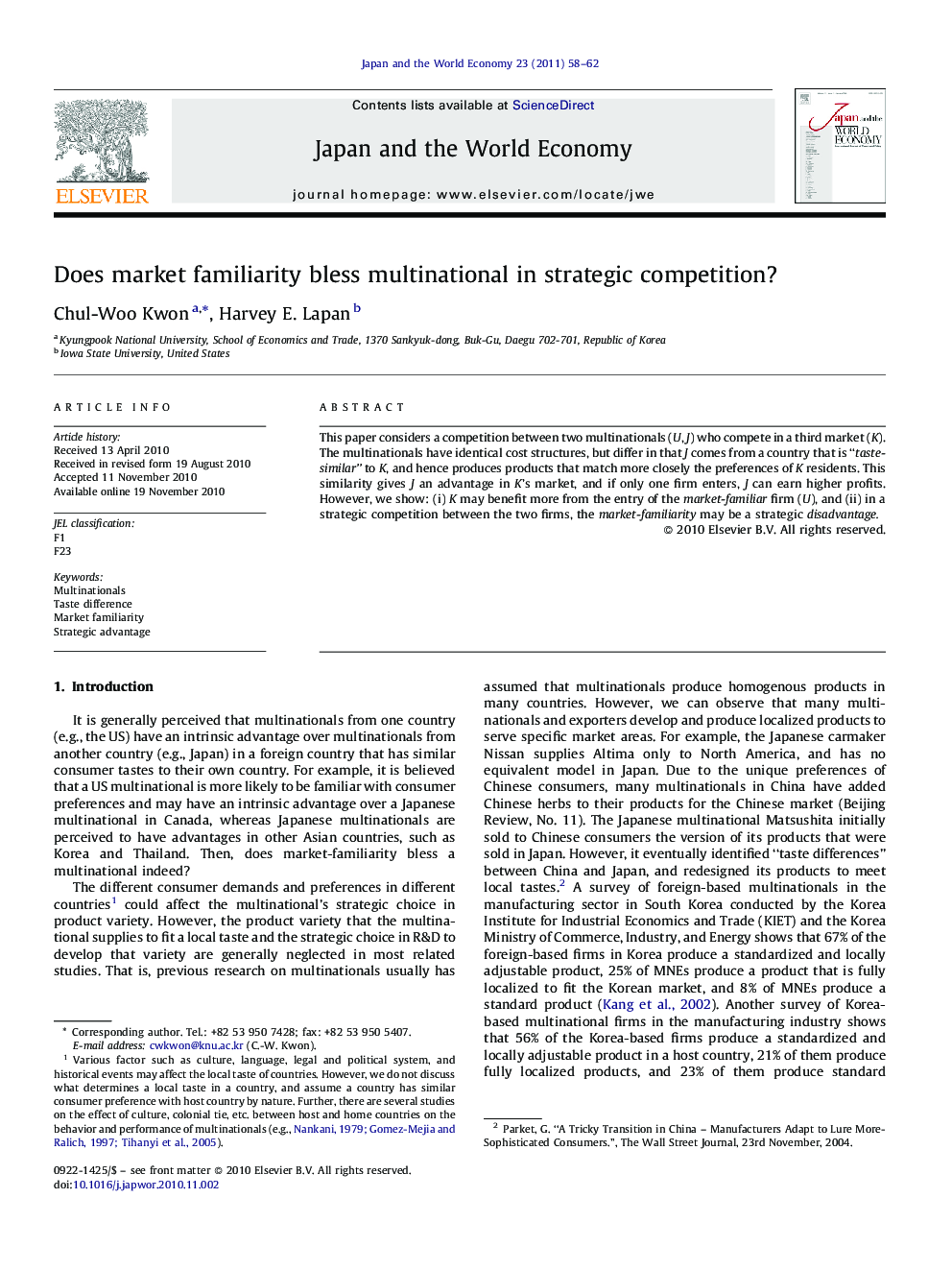| کد مقاله | کد نشریه | سال انتشار | مقاله انگلیسی | نسخه تمام متن |
|---|---|---|---|---|
| 5086274 | 1375163 | 2011 | 5 صفحه PDF | دانلود رایگان |

This paper considers a competition between two multinationals (U, J) who compete in a third market (K). The multinationals have identical cost structures, but differ in that J comes from a country that is “taste-similar” to K, and hence produces products that match more closely the preferences of K residents. This similarity gives J an advantage in K's market, and if only one firm enters, J can earn higher profits. However, we show: (i) K may benefit more from the entry of the market-familiar firm (U), and (ii) in a strategic competition between the two firms, the market-familiarity may be a strategic disadvantage.
Research highlightsⶠThis paper develops a strategic model between two firms to consider whether, when trying to sell in a third country, the firm from a country that is “taste-similar” to market country has an advantage over the firm from the more dissimilar country. ⶠHost country may benefit more from the entry of the market-familiar firm. ⶠIn a strategic competition between the two firms, the market-familiarity may be a strategic disadvantage.
Journal: Japan and the World Economy - Volume 23, Issue 1, January 2011, Pages 58-62